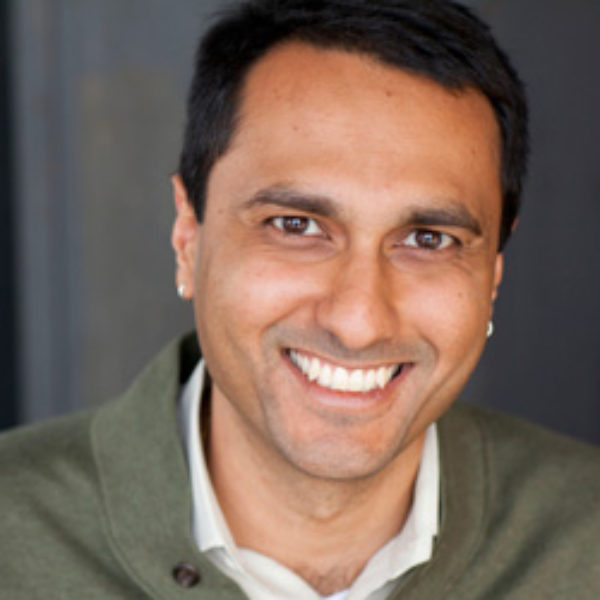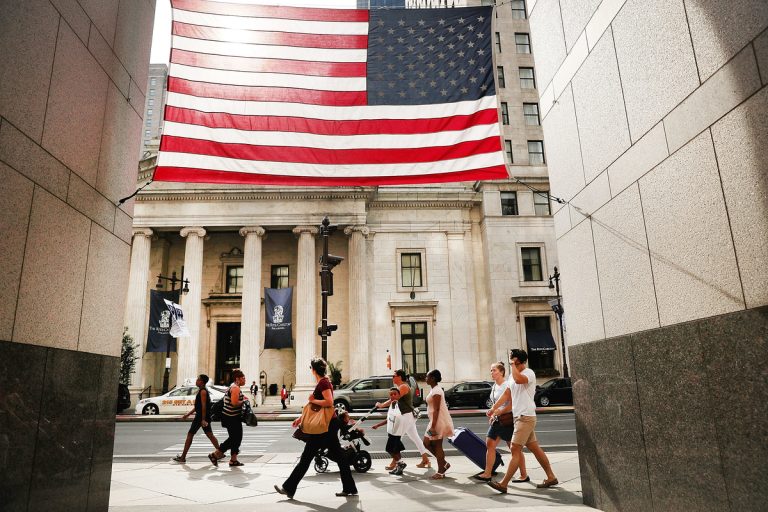The Greatness of the Myth, The Goodness of the Man
For a stretch of time in my life, every which way I turned, I heard the name Vincent Harding.
My colleague at Interfaith Youth Core Tony Banout says to me one day, “Hey, do you know that Martin Luther King, Jr. didn’t write his famous Riverside Church speech. This guy Vincent Harding did.”
Over coffee at his house in Durham, my friend Omid Safi, Professor of Islamic Studies at Duke, tells me: “I’ve been meeting with this legend of the civil rights movement, Vincent Harding. It’s been one of the most enriching experiences of my life.”
I ask Krista Tippett, host of the radio program On Being, to name her favorite recent interview. “Vincent Harding,” she says, without skipping a beat.
“Who is Vincent Harding?” I wonder. This man had impacted so many people I admired. I resolved to learn more about him. About five minutes later, I forgot that resolution. I had other things to do. Kids to pack lunch for, an organization to run, articles to finish.
The next time I thought about Vincent Harding, I was reading his obituary in The New York Times.
So who was Vincent Harding?
A towering intellectual who held appointments at Spelman, Temple, Swarthmore, the University of Pennsylvania and the Iliff School of Theology. A man who both wrote history and made it. A founder of the field of black studies and a man embodied its core values in his life.
Who was Vincent Harding?
A patient institution builder, who led organizations that included Mennonite House, the Martin Luther King Jr Memorial Center and the Institute for the Black World.
Who was Vincent Harding?
A man who trusted his inner compass. During his time in the military, Vincent found himself reading the Bible ever more closely. In the final analysis, he could not square the example of Jesus with the essential duties of a soldier. He became a Mennonite, joining a historic peace church that has much in common with the Brethren founders of the University of La Verne.
Who was Vincent Harding?
A writer of a new American story, serving as the senior academic consultant to the PBS series, Eyes on the Prize.
Who was Vincent Harding?
A builder of a new American citizenry, with projects like Veterans of Hope which brought every day heroes from the Civil Rights Movement together with young activists in cyphers to swap stories and build community. Vincent spoke of story as an essential form of nurture for healthy human beings. He created the spaces for the stories of elders to be shared and the stories of young people to be shaped.
Who was Vincent Harding?
A believer in a new America. He loved to quote the line,
“I am a citizen of a country that does not yet exist.”
He pushed those around him to build that new nation. The key tool was imagination. He reminded his audiences that it was the exponents of an enslaved people — Harriet Tubman, Frederick Douglass, Martin Luther King Jr — who became this nation’s greatest authorities on freedom. How is it that they who had known the whip of the slave master and the indignity of segregated water fountains could come to envision freedom for themselves and others? They had the discipline of imagination.

In my own story with Vincent Harding, notice how the tense shifts from present to past. Part of the power of my university education was to do the American success thing well, to acquire the things that my college education helped me acquire.
As much as I love my life and am grateful for it, every once in a while I lift up my head and recognize I am not the one in control. The details and duties have worked their way into every crevice of my system and taken over. I move at the speed of a machine; I accomplish a lot, but I sense that along the way something is lost. Most of the time, that sense of loss is somewhat hazy.
But a true education aspires to something else as well. It expands your imagination to transcend the successful life at necessary moments. It attunes you to stories of people like Vincent Harding, and inspires you to make the time to find out more. And when you miss your chance, you learn from that too.
This past year, I missed spectacularly. And that loss has a name: Vincent Harding.
Last December I participated in a retreat with a group called the Council of Elders, civil rights era activists who over the past half-century built the country that we now live in, and amazingly have the energy to work towards the next version of it. Vincent had been a part of the group, and there was much talk about him. Aljosie, his widow, was there — listening to the stories, and sharing some herself.
As people talked about Vincent and passed a picture of him around, I had this sudden, body-shaking realization: I had met him. I had met Vincent Harding when he was alive.
It was at a church in Denver a decade ago. I was speaking about my organization and Vincent was there, just part of the audience, sitting quietly in a pew in the back. He approached me after the speech and said, “I am intrigued by this organization you’ve started, Interfaith Youth Core. I also work with young people on spirituality and activism. You and I, we ought to work together.”
And I remember step by step, second by second, the unbelievable thing I did next. I told Vincent that my organization had a strategy and a plan and a set of metrics. I said that his work was interesting, but it was not part of our business plan. Also, spirituality could not be easily quantified. I shook his hand and shrugged and then I said, “No, I’m sorry, I don’t think we can work together.”
I had met a legend, a lion, a builder of the dream, one of the people who had fought and bled so that someone with a name like mine, a color like mine, a religion like mine, could live free in America. He had waited in line to see me, put his hand out, proposed a partnership, and I had said … no.
At the beginning of this essay, I asked “Who is Vincent Harding?” The embarrassing truth is that I did not have to wait to read his obituary to find out.
Closing circle time came at the retreat. “Share what’s on your heart,” the facilitator said. I told them my story, what I had just realized about meeting Vincent. I got back a series of knowing looks and slight smiles from the Council of Elders. None of them were that surprised. Those who have built America are accustomed to being ignored.
After the last person spoke, folks left to gather their belongings for the trip home. I stayed in the room, still recovering from the shock of my realization, of the full spectacle of my stupidity.
Aljosie, Vincent’s widow, saw me. She approached and put her hand on my cheek and said:
“You should know that Vincent followed your work, and he loved you, and he forgives you.”
Life is full of mistakes that we learn from, a constant process of trespass, forgiveness, and redemption. Even Rumi ignored Shams when they first met. He was too focused on his job in Islamic law to recognize the mystic master.
If they are really your Vincent Harding, they will continue to love you, and they will forgive you. Even in their death they will uplift you. So let it be with Vincent, for me, and for all of us.
I leave you with one of his most penetrating insights:
“Now it’s a powerful time in this country for young people and others to be asking the question: and what are we for? Do we exist for some reason other than competing with China or finding the best possible technological advances? Are there some things that are even deeper that we are meant for, meant to be, meant to do, meant to achieve? Jimmy Baldwin used to like to talk about us achieving ourselves, finding who we are, what we’re for. And making that possible for each other.”
And so I learned that the greatness of Vincent Harding the myth was matched by the goodness of Vincent Harding the man. I mourn the missed opportunity of Vincent’s friendship. His name will forever represent both what I lost, and what I found.
This essay was adapted from a commencement address given at the University of La Verne in June 2015.


Share your reflection